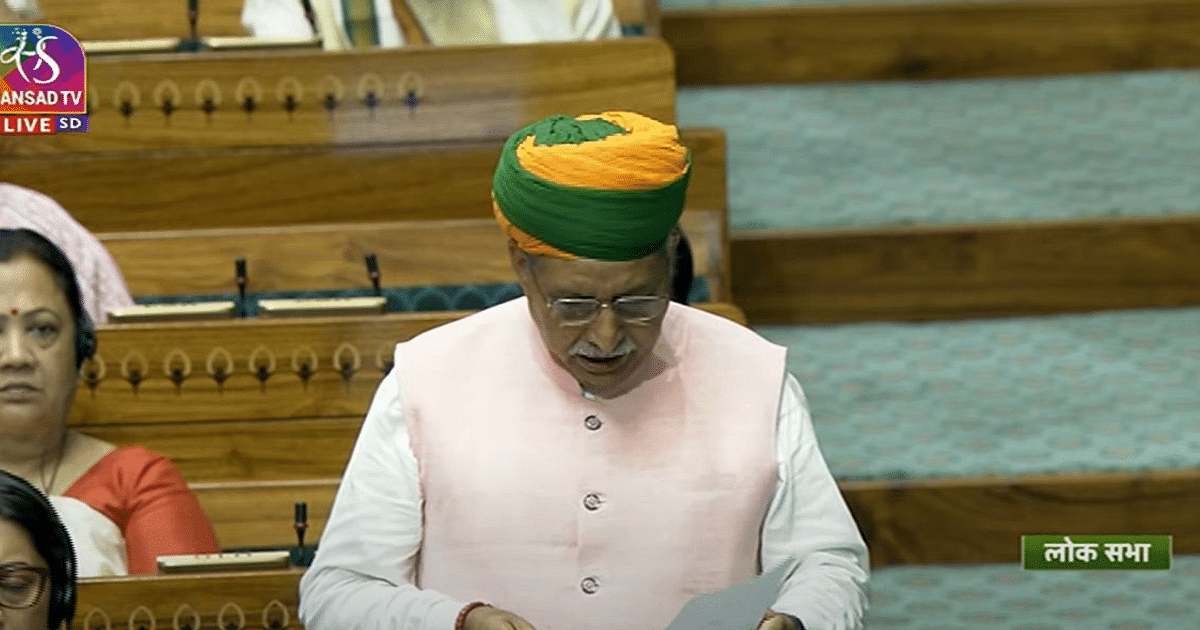Women Reservation Bill: As soon as Modi government reached the new Parliament, Law Minister Arjun Meghwal introduced the Women Reservation Bill.Nari Shakti Vandan Act‘Introduced in the Lok Sabha. The cabinet had given its approval to this bill on Monday. This bill is a master stroke of the Narendra Modi government in view of the 2024 Lok Sabha elections. Through this bill, PM Modi has worked to help half the population of the country. Presenting this bill in the Lok Sabha, Law Minister Arjun Ram Meghwal said that as soon as this bill becomes law, 33 percent seats will be reserved for women in the Lok Sabha and Assemblies.
181 seats will be reserved for women
According to the provisions of this bill, 181 out of 543 seats in the Lok Sabha will now be reserved for women. The Law Minister said that the provision of reservation will remain in force for 15 years. After that the Parliament will have to decide on extending its period. This is the 128th amendment bill of the Constitution. Under the Nari Shakti Vandan Act, there will be no separate reservation system for SC-ST category women. But out of the seats reserved for SC-ST category, 33 percent will now be reserved for women. There is no provision for separate reservation for OBC women in the bill. They will have to contest elections only on unreserved seats.
Women’s reservation bill had been introduced several times before
Before the introduction of the Women’s Reservation Bill, Prime Minister Narendra Modi said that his government is determined to make the Narishakti Vandan Bill, which provides for women’s reservation in the Lok Sabha and state assemblies, a law. In her statement in the Lok Sabha on the first day of proceedings in the new Parliament House, she also said that the Women’s Reservation Bill has been introduced in the Parliament many times before, but for this purpose of giving rights to women and harnessing their power. ……God has chosen me for many such sacred works.
Deve Gowda’s government first introduced the Women’s Reservation Bill in 1996.
The journey of the Women’s Reservation Bill is 27 years old and since then women have been struggling to get their demand fulfilled. It was first introduced in the Parliament by the HD Deve Gowda government in September 1996. After that, every subsequent government presented this bill in Parliament and tried to get it passed, but this bill could not be passed. This bill was also passed by the Rajya Sabha in 2010, but due to lack of political will, this bill could not be passed by the Lok Sabha. This was a surprising move in 1996, as many leaders of the Janata Dal and other components of the ruling coalition were not in favor of it. The next day the bill was sent to a joint committee headed by CPI’s Geeta Mukherjee.
Rajiv Gandhi was the first to talk about giving reservation to women.
Rajiv Gandhi first formed a committee in 1987 and sought suggestions to increase women’s participation in elections. Margaret Alva was the chairperson of this committee and she recommended reservation. After that, Rajiv Gandhi had presented a bill in Parliament regarding reservation for women in Panchayats and Municipalities, which could not be passed. Later, Narasimha Rao’s government made a law to provide reservation to women in Panchayats.
The bill was torn in Atal ji’s government
Women’s Reservation Bill was introduced in the Lok Sabha in 1998 during the government of Atal Bihari Vajpayee, but due to lack of numbers, this bill could not be passed. At that time the RJD MP had snatched the bill from the hands of the Law Minister and tore it. In this bill, reservation was also demanded for backward class women and Muslim women. Women’s Reservation Bill was introduced several times during the tenure of former Prime Minister Atal Bihari Vajpayee, but could not gather data to pass it and that dream remained unfulfilled.

